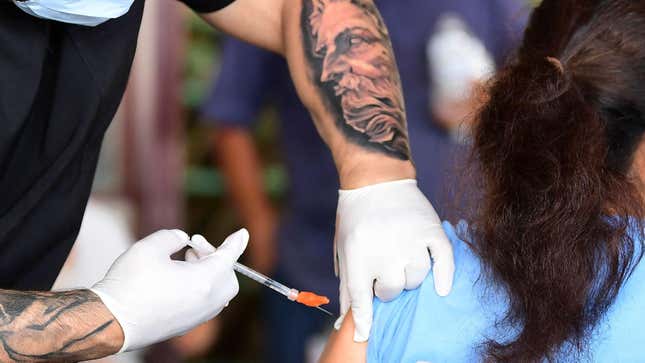Arkansas' Rising Covid Rates Paint a Grim Picture of the Pandemic's Future
With people in the poorest countries unlikely to access vaccines until 2023, outbreaks like this one will continue into the foreseeable future.
EntertainmentEntertainment

Despite there being three covid-19 vaccines currently approved for use in the United States—Pfizer-BioNTech and Moderna’s since December and Johnson & Johnson since February—outbreaks continue to crop up throughout the country.
-

-

-

-

-

-

-

-

-

-

-

-

-

-

-

-

-

-

-

-

-

-

-

-

-

-

-

-

-

-

-

-

-

-

-

-

-

-

-

-








































